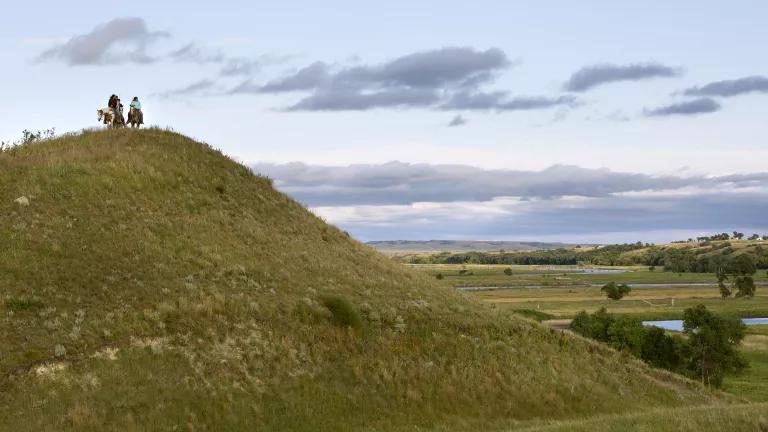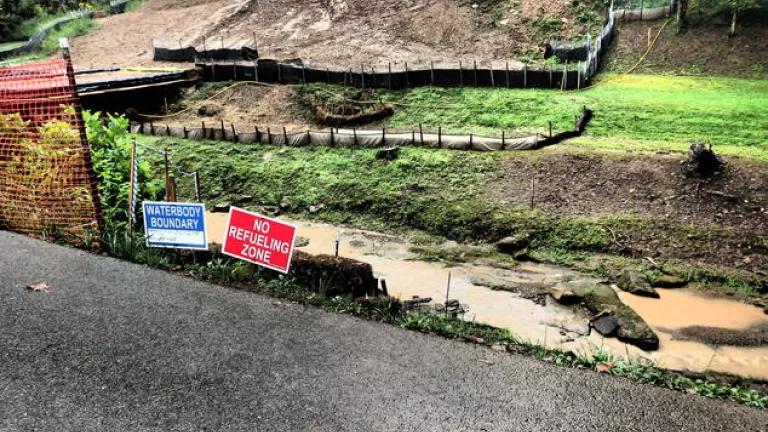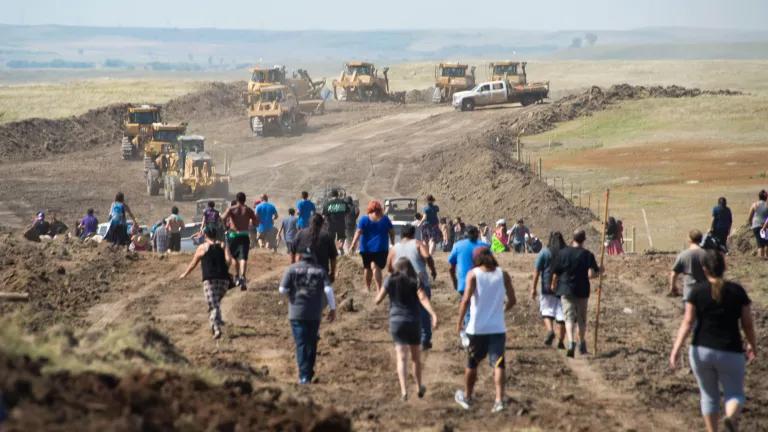Improve Management in the Bakken
The scale of industrialization is staggering, and NRDC is pushing oil and gas companies to reduce their impact on people’s health, the local environment, and the global climate.
Fracking has unleashed an energy boom in North Dakota’s Bakken formation. In 2007, the Bakken had 457 wells. By mid-2014, 7,526 wells were operating in North Dakota, and the state was producing 1 million barrels of oil and 1.2 billion cubic feet of natural gas every day. Experts predict that 35,000 to 40,000 new wells will be drilled and fracked in the region over the next two decades.
The scale of industrialization is staggering, and NRDC is pushing oil and gas companies to reduce their impact on people’s health, the local environment, and the global climate.
Our scientists document the enormous impact fracking has on the region’s waterways. In one North Dakota county alone, 1 billion gallons of water were used to produce 100 million barrels of oil. Oil and liquid waste routinely flow out of well pads and seep into groundwater, wetlands, and streams. In 2013, oil and gas companies caused more than 1,700 spills in North Dakota.
NRDC is pressing for stronger state and federal safeguards to protect the area’s precious water resources. At the same time, we are calling on oil and gas companies to hold themselves to higher standards.
Our engineers identify best practices that leading companies have used to reduce water use, prevent spills, and block toxic chemicals from seeping into water supplies. We also urge companies to stop burning off natural gas—many consider it unprofitable to sell at today’s prices, so they light it on fire. This practice releases potent greenhouse gases into the atmosphere, and it must stop.



